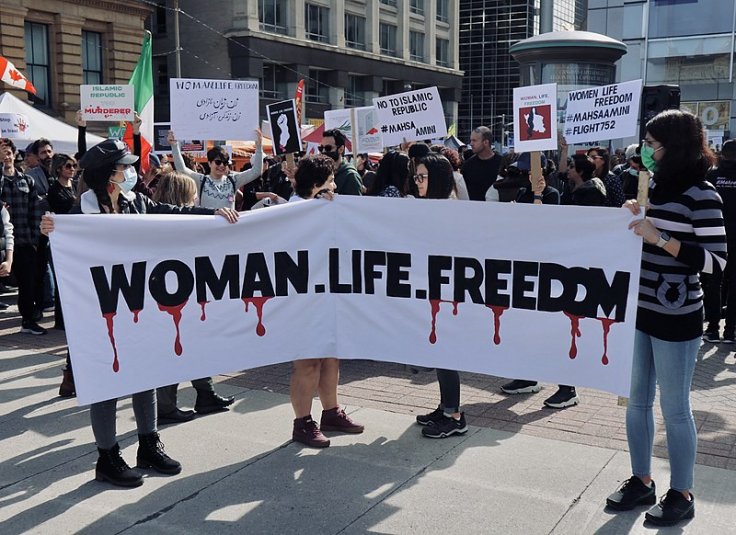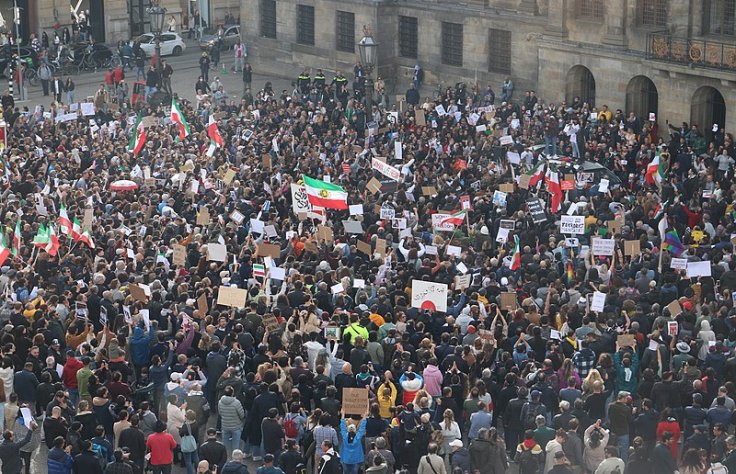Iran is facing another spate of protests after a schoolgirl was beaten to death by security forces in the classroom for refusing to sing a pro-regime song last week.
Security forces raided the Shahed Girls High School in Ardabil on Thursday and ordered a group of girls to sing an anthem that praises Iran's supreme leader Ayatollah Ali Khamenei. The girls, including Asra Panahi, were beaten by the security forces when they refused to sing.
Several students were taken to the hospital and a number of others were arrested. The 16-year-old, who was from the Azeri ethnic minority, died in the hospital due to the injuries sustained in the beatings at the school.
However, Iranian officials have denied the report. The Revolutionary Guards quoted Panahi's uncle saying that the high school student died of a heart attack attributed to a congenital condition. The 16-year-old's death has further mobilized school girls across Iran to organize and join protests.

Schoolgirls a Force to Reckon With
Since Mahsa Amini's death, schoolgirls have emerged as a powerful force taking on the morality police and the Iran's regime. Authorities launched a series of raids on schools with videos showing security officers forcing their way into classrooms, violently arresting schoolgirls, and firing teargas into school buildings.
The Coordination Council of Iranian Teachers' Trade Associations condemned the violence. "In the last week, we witnessed the brutal attack of security forces and plainclothes on educational centers in various cities of the country, including schools in Kordestan province, Gohardasht and Mehrshahr near the capital Tehran, Orumiyeh (Urmia) and Ardabil in northwestern Iran and the northern city of Rasht." The association called for the resignation of the education minister Yousef Nouri.
Protesting Students Sent to Mental Health Facilities
Last week, Nouri acknowledged that school students had been protesting, and the government has been responding by detaining and sending them to mental health facilities. He said the establishments are meant to reform the protesting students and rid them of their anti-social behaviors.

Hossein Raeesi, an Iranian human rights lawyer, said the mental health facilities act as detention centers. He highlighted that psychologists and social workers within the establishments are following a strict government agenda, and aren't allowed to work independently with the children. "They don't provide psychological support for the kids, but rather brainwash them and often intimidate or threaten them." Raeesi said the children come out worse than when they entered.
Sepehri Far of Human Rights Watch said authorities are finding it difficult to police underage demonstrations. "While it is easy to criminalize adult protesters, violent crackdowns against children risk full-blown anger throughout the country," she said. Human rights activists say a large number of children are at risk as the protests have heavy youth participation. They said crackdown on children has been brutal as the government has responded to child protesters with arrests and violence.
Iran protests have quickly expanded to broader grievances and encompassed demands for fundamental political and social change towards protection and fulfilment of human rights.









